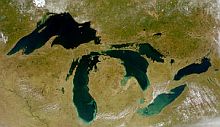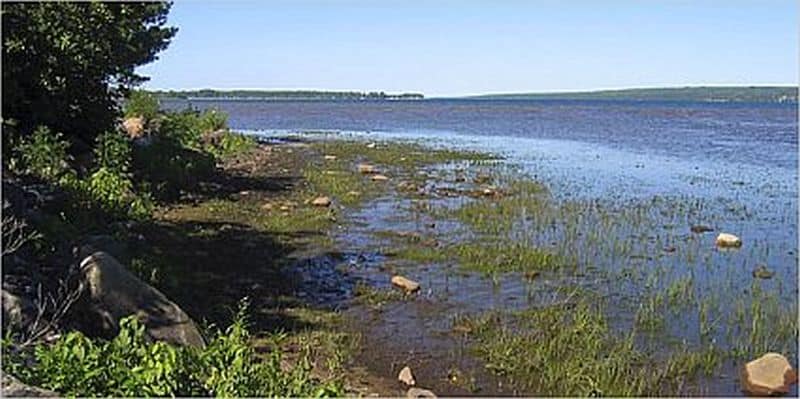The Great Lakes, the largest group of fresh water lakes on Earth seem to be getting deprived of more and more water. The reason for the same seem to be in dispute, with some are leveling blame at the changing climate, new rainfall patterns, others at over use of the lakes waters, introduction of invasive species and sewage contamination and pollution in the lakes.
Water levels in the three upper Great Lakes are wavering far below normal, and experts expect Lake Superior, the northernmost lake, to reach a record low in the next two months, according to data from the international bodies that monitor the Great Lakes.
These inland seas over the years have been a main mode of transport for bulk goods, recreational boating, tourism, sport and commercial fishing. As there water level gets lower homeowners, resort owners and marina owners have more trouble getting boats in and out of the water, shipping companies need to lighten loads on freighters, and consumers face higher prices on goods and materials shipped via the lakes.
Obvious evidence of this loss of water abounds
Ship channels are overdue for dredging, wetlands in some areas like Georgian Bay, east of Lake Huron in Ontario, have dried up, leaving fish and birds without accustomed places to reproduce. Beaches around Saginaw Bay in Michigan have reverted to marshes as shorefront reverts to wetlands. One-third of the Michigan boat ramps are unusable.
Man-made changes far-reaching in terms of water loss of the lakes 
Gravel mining early in the 20th century by private companies and dredging by the Army Corps of Engineers, particularly in the mid-1960s, may have widened and deepened the St. Clair River, through which those two lakes drain into Lake Erie. The flow may be eroding the riverbed. The erosion may in turn result in increased outflow, more than can be replenished by rain or snowmelt, according to a study by a group of Canadian coastal engineers.
Data being released this week by a group of Canadian homeowners, supplementing an engineering study from 2005 by W. F. Baird and Associates, a Canadian business, indicates that the outflow is undiminished and may be significantly greater than earlier estimates.
If the new estimates are correct, 2.5 billion gallons a year are being lost through the expanded parts of the St. Clair, roughly the equivalent of the amount diverted annually for Chicago’s needs.
The persistence of low water in Lakes Huron and Michigan has been out of keeping with the larger cycles of high and low water in the basin. The level of Lakes St. Clair and Erie, more southerly lakes, has been slightly above average. These lakes receive the Huron and Michigan outflow. Intake of abnormally high amounts of water could raise their levels. However, so could unusually high rainfalls.
Bill Bialkowski, a homeowner who is an engineer and took the new measurements and said:
We obviously believe that the river is eroding, It would be nice to stabilize it where it’s occurring.
Candice S. Miller, Republican of Michigan’s 10th District, is quoted to have said:
You’re diverting millions of gallons into the Atlantic Ocean
Straight away more research, and more funds need to be directed into the conservation of these lakes, that touch the lives of many people in the US and Canada. Especially in terms of stopping all kinds of unnecessary outflow of fresh water into the ocean.
Source: Telegraph



